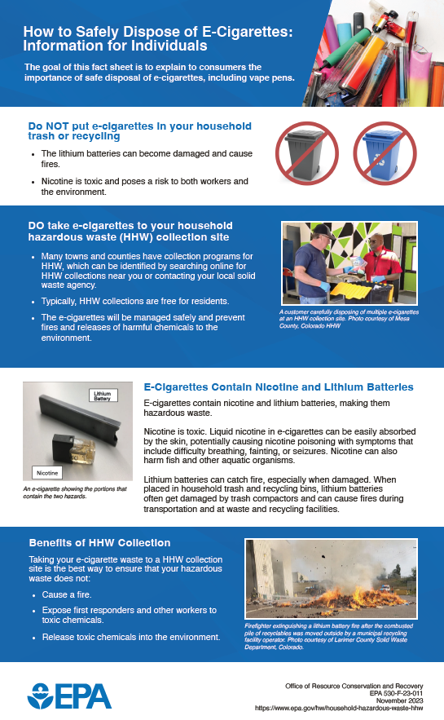How to Safely Dispose of E-Cigarettes: Information for Individuals
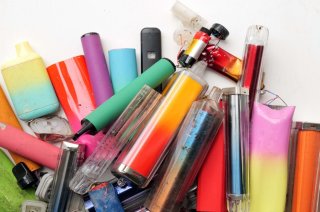
On this page:
- Do NOT put e-cigarettes in your household trash or recycling
- DO take e-cigarettes to your household hazardous waste collection site
- E-cigarettes contain nicotine and lithium batteries
- Benefits of household hazardous waste collection
- Printable fact sheet
Do NOT put e-cigarettes in your household trash or recycling
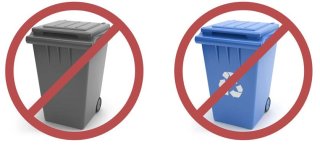
- The lithium batteries can become damaged and cause fires.
- Nicotine is toxic and poses a risk to both workers and the environment.
DO take e-cigarettes to your household hazardous waste collection site
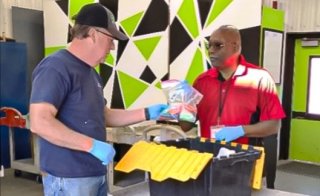
County, Colorado HHW.
- Many towns and counties have collection programs for household hazardous waste. Search online for household hazardous waste collections near you or contact your local solid waste agency.
- Typically, household hazardous waste collections are free for residents.
- The e-cigarettes will be managed safely and prevent fires and releases of harmful chemicals to the environment.
E-cigarettes contain nicotine and lithium batteries
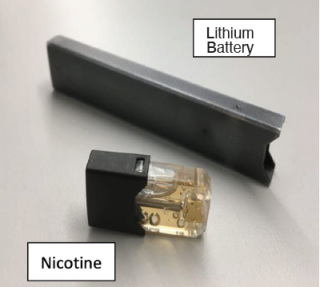
E-cigarettes are sometimes called e-cigs, vapes, vape pens, e-hookahs, and electronic nicotine delivery systems or ENDS. Some e-cigarettes look like regular cigarettes, cigars, or pipes. Some look like USB flash drives, pens, and other everyday items.
E-cigarettes contain nicotine and lithium batteries, making them hazardous waste.
Nicotine is toxic. Liquid nicotine in e-cigarettes can be easily absorbed by the skin, potentially causing nicotine poisoning with symptoms that include difficulty breathing, fainting, or seizures. Nicotine can also harm fish and other aquatic organisms.
Lithium batteries can catch fire, especially when damaged. When placed in household trash and recycling bins, lithium batteries often get damaged by trash compactors and can cause fires during transportation and at waste and recycling facilities.
Benefits of household hazardous waste collection
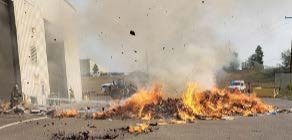
Taking your e-cigarette waste to a household hazardous waste collection site is the best way to ensure that your hazardous waste does not:
- Cause a fire.
- Expose first responders and other workers to toxic chemicals.
- Release toxic chemicals into the environment.
Printable fact sheet
Access a printable version of the information on this webpage (pdf)(698 KB).
